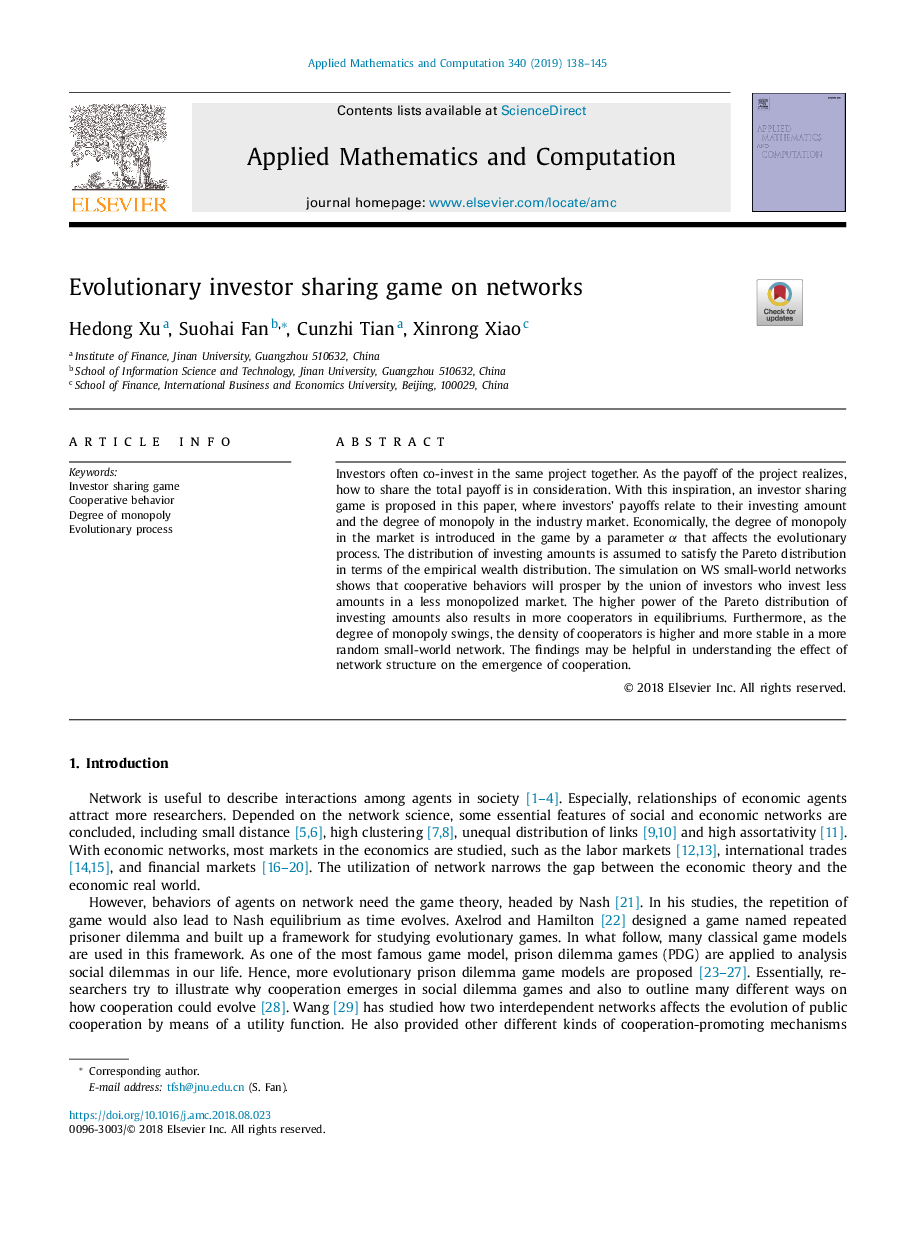| Article ID | Journal | Published Year | Pages | File Type |
|---|---|---|---|---|
| 10149800 | Applied Mathematics and Computation | 2019 | 8 Pages |
Abstract
Investors often co-invest in the same project together. As the payoff of the project realizes, how to share the total payoff is in consideration. With this inspiration, an investor sharing game is proposed in this paper, where investors' payoffs relate to their investing amount and the degree of monopoly in the industry market. Economically, the degree of monopoly in the market is introduced in the game by a parameter α that affects the evolutionary process. The distribution of investing amounts is assumed to satisfy the Pareto distribution in terms of the empirical wealth distribution. The simulation on WS small-world networks shows that cooperative behaviors will prosper by the union of investors who invest less amounts in a less monopolized market. The higher power of the Pareto distribution of investing amounts also results in more cooperators in equilibriums. Furthermore, as the degree of monopoly swings, the density of cooperators is higher and more stable in a more random small-world network. The findings may be helpful in understanding the effect of network structure on the emergence of cooperation.
Related Topics
Physical Sciences and Engineering
Mathematics
Applied Mathematics
Authors
Hedong Xu, Suohai Fan, Cunzhi Tian, Xinrong Xiao,
